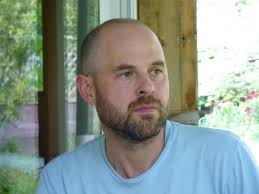
Out of Our Heads, Alva Noë’s new book on consciousness, is a must read for anyone interested in this debate. It’s subtitled ‘Why You are not Your Brain, and Other Lessons from the Biology of Consciousness.’ You can tell where it’s coming from by the reductionist Daniel Dennett’s endorsement: ‘Those of us who disagree with some of its main conclusions have our work cut out for us.’
Noë argues that the brain is a bit player when it comes to consciousness. Whatever consciousness is, nothing less than being embodied, habituated and situated in a whole world or environment is what makes it. So you’ll never learn what love is, or religion is, or language is from a brain scanner. The book is a kind of intervention designed to upset cognitive neuroscience, intellectualist theories of language, computational artificial intelligence and so on.
A big part of its success stems from the arresting and iconoclastic cases and examples he deploys.
Mriganka Sur at MIT rewired the brains of ferrets so that their optic nerves fed the aural parts of the brain. Did they then ‘hear with their eyes?’ No, they saw with the eyes, as normal. Which suggests two things. First, regions of the brain are not functionally fixed, as brain scans presume, but are as fluid as the plasticity of the neural connections themselves. Second, seeing is as much to do with the external world as what goes on inside your head: to see is to access the world as it is, it is not to inspect some image of the world supposedly generated by the brain.
Paul Bach-y-Rita developed a device for blind people whereby a camera would convert images of the world into a pattern of vibrations felt on the skin of the thigh or abdomen. Users quickly learnt to see, and were able to hit balls with bats for example. Moreover, they did so in just hours or minutes. That short timeframe suggests that there can be perceptual plasticity without any significant neural changes. Again, that’s because seeing is out of your head.
A different example of this externalism. Why is it that speaking on a mobile phone whilst driving is so dangerous, whilst speaking to someone in the car with you is not? To converse with someone is to share a setting. When talking in the car, you share the setting of the car with the passenger, and so there’re minimal adverse risks for your driving. When talking on the phone, your mind is taken to another setting entirely, and so your mind is literally taken off driving. Hence the danger.
Does Noë solve the ‘hard problem’? No. There is little in this book about major questions, like the nature of free will, though I expect Noë would argue free will is a rather overblown concept, obsessed with issues like autonomy, and that it has much to do with the way the world shows up to us as already being for something. (For example a stone is not a thing to us but is already a weight, or a decorative object, or a piece of geological evidence, or a part of the landscape.) Conversely, he doesn’t speculate about things like the purposefulness of the world which first person, embodied consciousness brings, or on issues that cosmologists enjoy, such as what it means to say that the cosmos observes itself in us.
What he does show is why the reductionist notion that brain states are mental states ain’t ever going to solve the hard problem. Consciousness is more like dancing than digestion. It is something that is done or achieved by our being in the world.
Basically, he advocates a phenomenological line. Creatures, even simple ones, are not machines mechanically performing tasks but are organisms with desires and designs on their environment. The brain supports our involvement with the world but it is not the author of our experience.
The significance of the book, I think, is not that it’s full of new ideas. Neither is it that Noë is the first to advocate this different approach in popular form; Ray Tallis has done so too. But the book is short, a joy to read, and is written in simple language. That matters for, from what I see, the science of consciousness is subject to rhetoric and fashions. Perhaps this different approach to consciousness is just now beginning to gain currency.